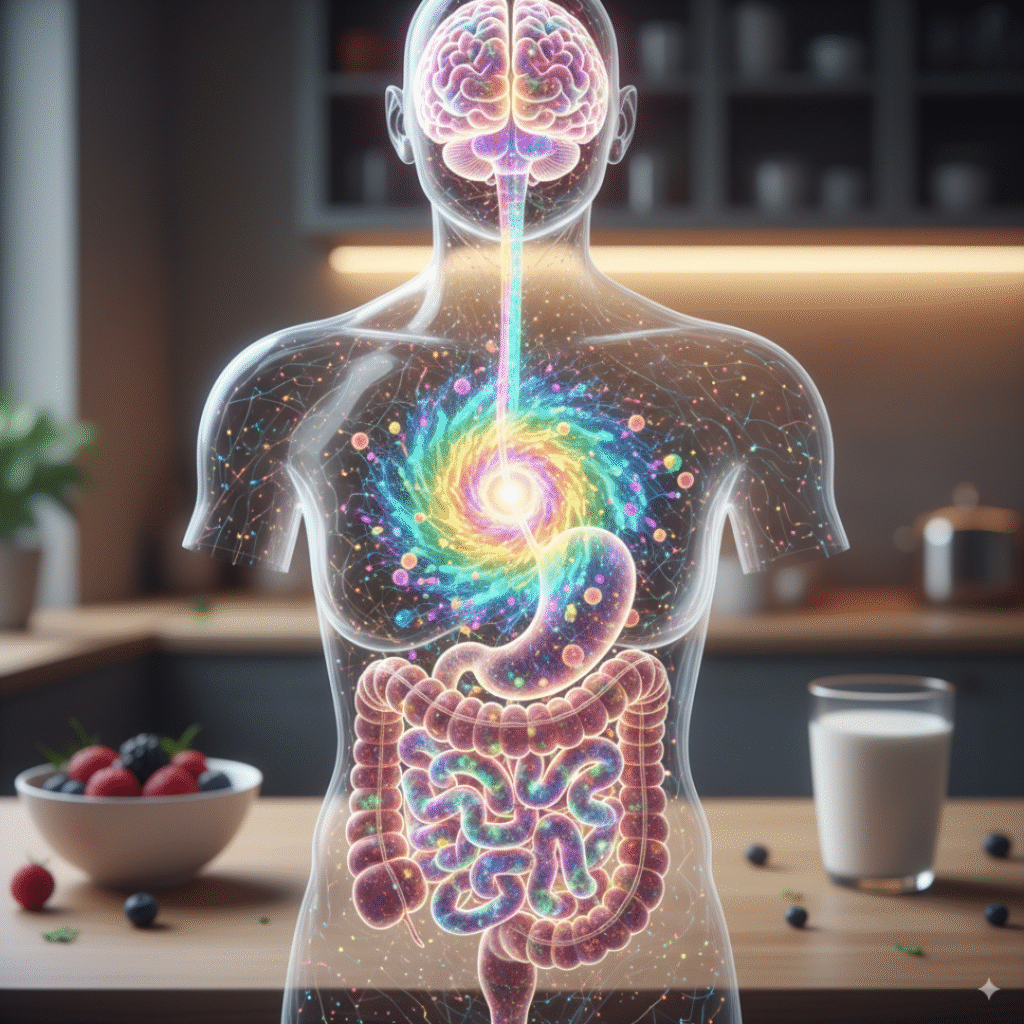Gut health has become one of the most talked-about topics in the world of nutrition, wellness, and overall health. Many people are beginning to realize that the gut plays a much bigger role than just digesting food. It impacts immunity, mood, energy, and even skin health. When the digestive system is balanced and working properly, the body feels healthier and more resilient. On the other hand, an imbalanced gut can lead to a range of uncomfortable symptoms such as bloating, irregular bowel movements, fatigue, or even difficulty concentrating. This is where nutrition counseling for gut health comes into the picture. With professional guidance, individuals can learn how to nourish their gut in ways that support long-term well-being.

Nutrition counseling is about more than just telling someone what to eat. It involves personalized strategies, education, and practical solutions that align with each person’s lifestyle. Since everyone’s gut microbiome is unique, what works for one person may not be effective for another. Counselors focus on identifying patterns, educating clients on food choices, and building sustainable eating habits that encourage a thriving digestive system.
Why Gut Health Matters
The gut is home to trillions of bacteria and microorganisms, collectively known as the gut microbiome. These tiny organisms are not harmful; in fact, they are essential to many bodily functions. A healthy gut microbiome supports digestion, helps absorb nutrients, produces vitamins, and communicates with the immune system. It also plays a role in regulating mood through the gut-brain connection, often referred to as the “second brain.” This means that taking care of your gut is not just about digestion but also about your overall physical and mental health.

When gut health is compromised, the body may struggle to function optimally. Nutrient absorption might be reduced, inflammation can increase, and signals to the brain may be disrupted. Over time, this can affect energy levels, mood stability, and resilience to everyday stressors. Good nutrition is one of the most effective tools for maintaining and restoring gut balance.
The Role of Nutrition Counseling
Nutrition counseling provides structured support and expert advice for individuals seeking to improve gut health. A counselor helps clients understand how their food choices influence digestion and the microbiome. More importantly, counseling provides strategies for making lasting changes, rather than relying on temporary fixes.
Some of the key benefits of nutrition counseling for gut health include:
-
Personalized Guidance – Since every gut microbiome is unique, nutrition counseling avoids the one-size-fits-all approach. Counselors evaluate individual food patterns, sensitivities, and lifestyle factors to create tailored recommendations.
-
Education and Awareness – Many people are not fully aware of how much their diet impacts digestion. Counseling empowers clients with knowledge about gut-friendly foods and habits.
-
Practical Solutions – Nutrition counseling often focuses on realistic and achievable steps, helping individuals make gradual changes that are easy to maintain.
-
Long-Term Support – Building a healthier gut does not happen overnight. Ongoing counseling provides accountability and adjustments along the way.
Gut-Friendly Foods
A major part of gut health involves choosing foods that promote balance and diversity within the microbiome. During nutrition counseling sessions, clients often learn about categories of foods that are particularly beneficial.

Fiber-Rich Foods: Dietary fiber is one of the most important nutrients for gut health. It acts as fuel for beneficial bacteria, helping them thrive. Foods like oats, beans, lentils, apples, and leafy greens provide both soluble and insoluble fiber that support digestion.
Fermented Foods: Fermented foods naturally contain probiotics, which are live microorganisms that can benefit gut health. Yogurt, kefir, sauerkraut, kimchi, and kombucha are popular options that add variety and beneficial bacteria to the diet.
Prebiotic Foods: Prebiotics are special types of fiber that feed good bacteria in the gut. Foods such as garlic, onions, bananas, and asparagus are excellent sources. Nutrition counseling often emphasizes pairing probiotics with prebiotics for maximum benefit.
Hydration: Drinking enough water supports digestion and helps fiber do its job effectively. Dehydration can contribute to sluggish digestion and discomfort, so hydration is often a key discussion point in counseling.
Whole Foods: Minimally processed foods tend to be more gut-friendly compared to heavily processed options. Whole grains, fresh fruits, vegetables, nuts, and seeds provide the nutrients and fiber that promote microbial diversity.
Foods That May Cause Discomfort
Just as there are foods that support gut health, some foods may disrupt it. Nutrition counseling can help clients identify potential triggers. These may include foods that are overly processed, high in added sugars, or lacking in fiber. Some individuals may also find that certain foods cause bloating or digestive discomfort, and a counselor can help in exploring patterns without overly restrictive approaches.
Lifestyle Habits for Gut Health
Food is only one part of the equation. Nutrition counseling often incorporates lifestyle habits that influence digestion.

- Mindful Eating: Eating too quickly or while distracted can interfere with digestion. Slowing down, chewing thoroughly, and being present during meals can significantly improve how the gut processes food.
- Stress Management: The gut and brain are closely connected. Chronic stress can disrupt digestion and microbial balance. Counselors may recommend mindfulness practices, deep breathing, or gentle physical activity to reduce stress.
- Regular Meals: Eating at consistent times helps regulate digestion and supports a healthy rhythm for the gut. Skipping meals or irregular eating patterns may confuse the digestive system.
- Sleep Quality: Poor sleep can negatively affect gut bacteria. Prioritizing good sleep hygiene is often part of a holistic approach to gut health.
The Counseling Process
A typical nutrition counseling journey for gut health begins with an initial assessment. During this stage, the counselor gathers information about the client’s health history, eating patterns, lifestyle, and digestive symptoms. This step is important because it helps identify specific goals and challenges.
After the assessment, the counselor develops a personalized plan. This might include dietary recommendations, lifestyle adjustments, and practical strategies for incorporating gut-friendly foods. Follow-up sessions are used to track progress, make adjustments, and provide ongoing education. Counseling is not about rigid diets; it’s about creating flexible and sustainable habits that improve long-term well-being.
Benefits Beyond Digestion
The benefits of nutrition counseling for gut health extend beyond smoother digestion. A healthy gut can improve immune function, reduce feelings of fatigue, and support clearer thinking. Many clients also report improvements in mood and overall energy. Since the gut is connected to multiple systems in the body, nurturing it creates a ripple effect that enhances overall wellness.
Common Misconceptions
When it comes to gut health, there are plenty of myths and misconceptions. Nutrition counseling helps clear up confusion by providing evidence-based advice. Some common myths include the idea that all fermented foods work the same for everyone, or that cutting out entire food groups is necessary for better digestion. Counselors emphasize balance, diversity, and personalization rather than extremes.
Building Sustainable Habits
One of the most valuable aspects of nutrition counseling is the focus on sustainability. Anyone can follow a strict eating plan for a short time, but maintaining gut health requires consistent effort over months and years. Counselors guide clients toward habits that fit naturally into their lives, making it easier to stick with positive changes. This might include meal planning, simple cooking strategies, or ways to navigate social situations without compromising gut health goals.
Conclusion
Gut health is a cornerstone of overall well-being, and nutrition plays a critical role in maintaining balance. Through nutrition counseling, individuals gain the knowledge, strategies, and support they need to create sustainable habits that benefit their digestive system and beyond. From eating fiber-rich and fermented foods to practicing mindful eating and stress management, the journey to a healthier gut involves multiple layers of self-care.
Nutrition counseling for gut health is not about short-term fixes or rigid rules. It’s about building awareness, making informed choices, and creating a lifestyle that allows the gut to flourish. A thriving gut supports energy, immunity, mental clarity, and long-term resilience. At Ciranox, our personalized nutrition programs are designed to guide you every step of the way, tailoring strategies to your unique needs and lifestyle. All you need to do is fill up this form or sign up with Ciranox to start your journey with us—unlocking the tools, guidance, and support to nurture your gut health and achieve lasting wellness naturally.




